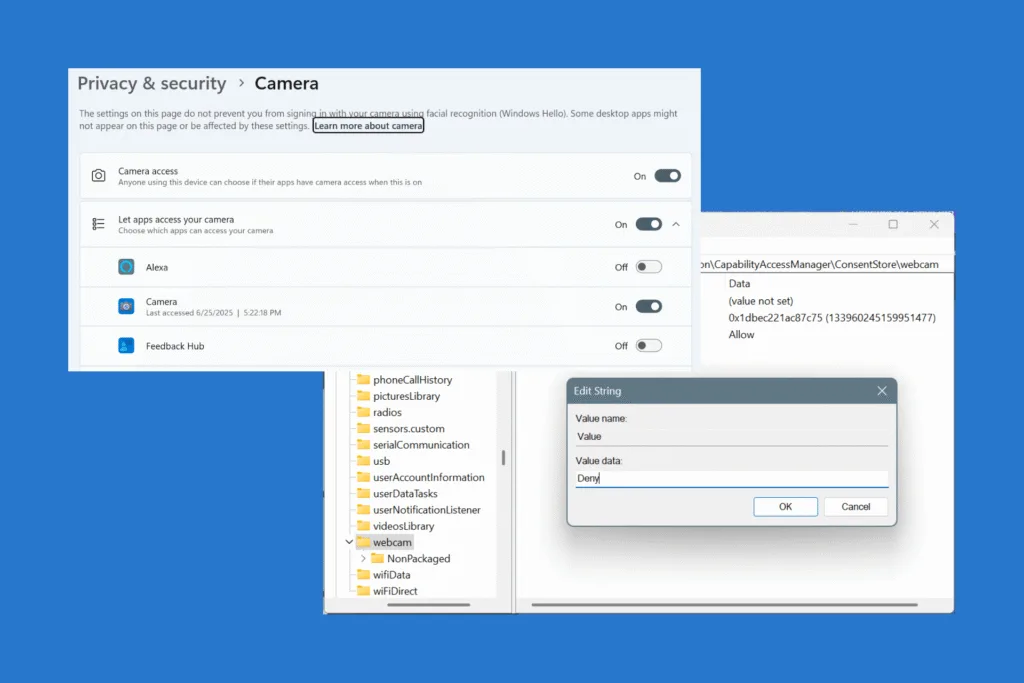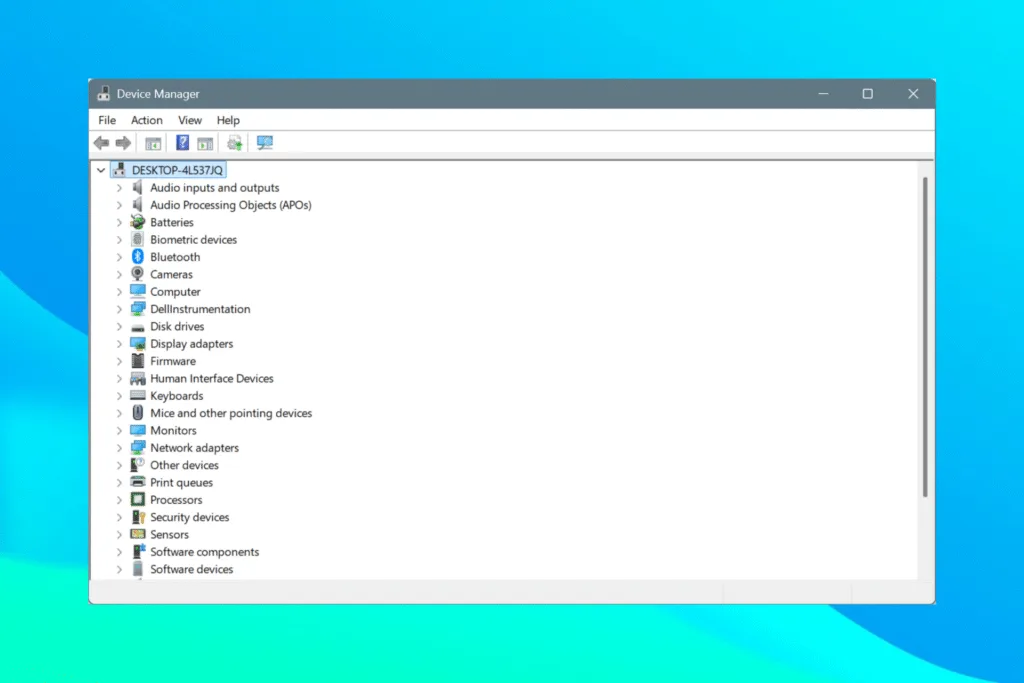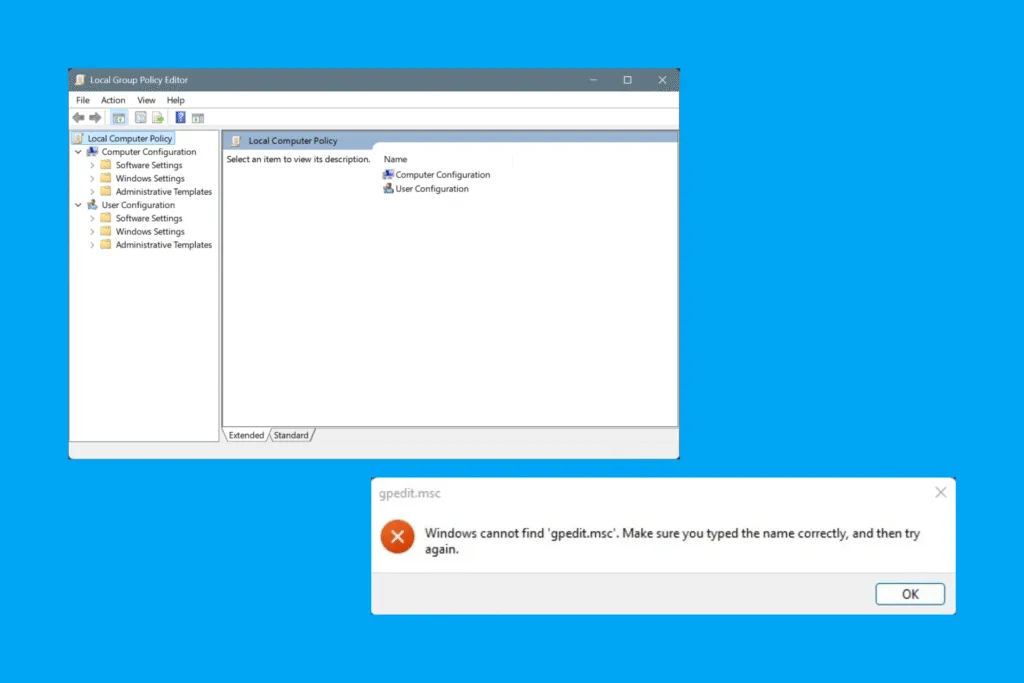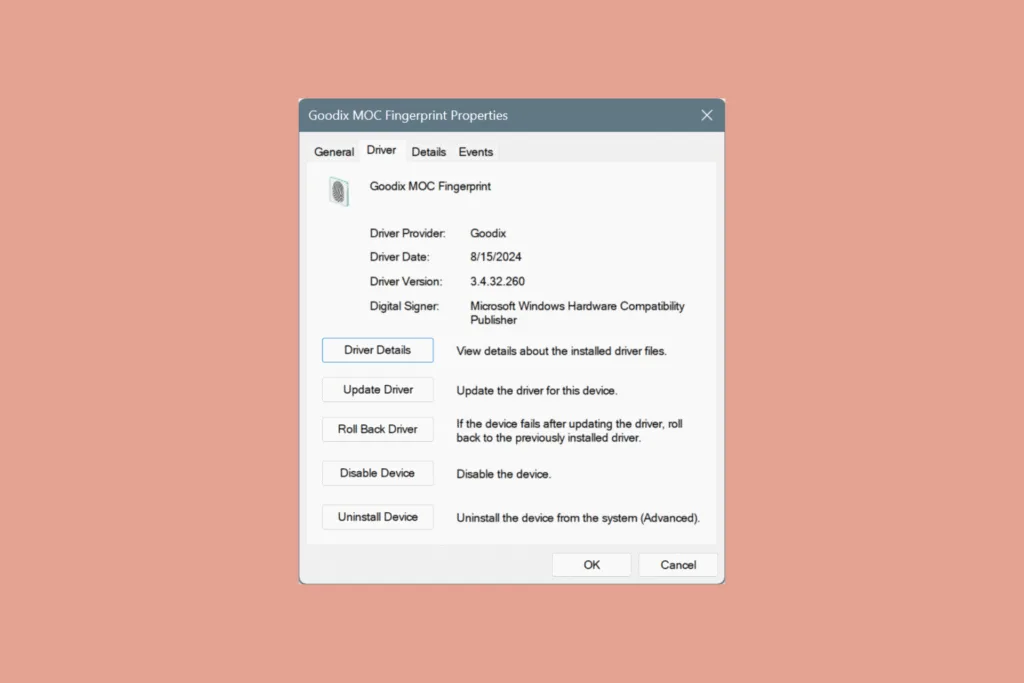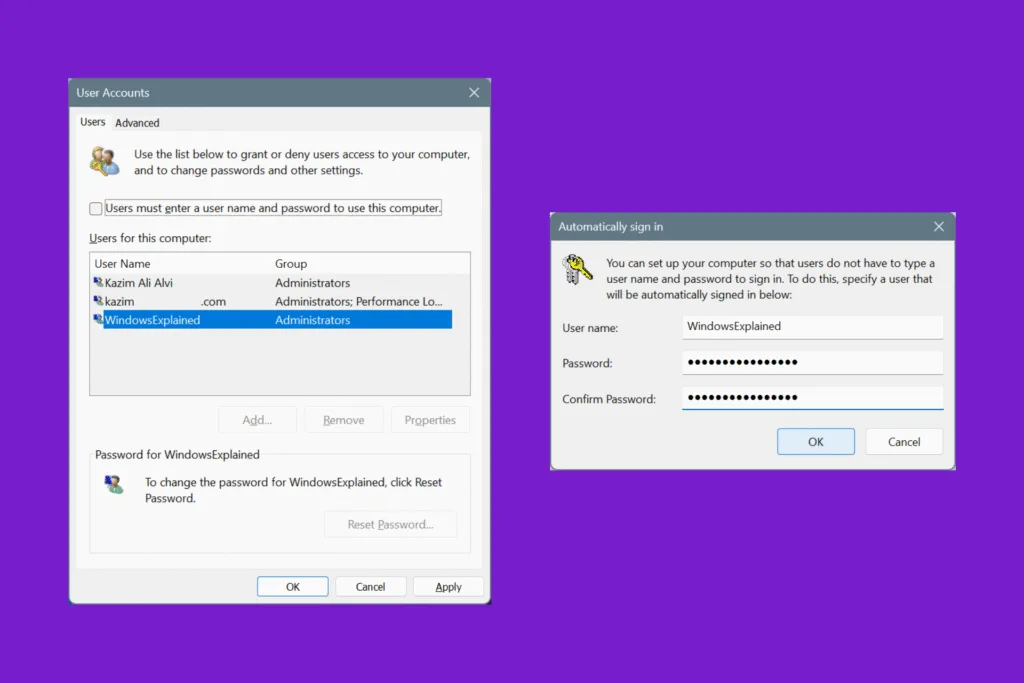In an age where privacy and security are the prime concerns of every tech enthusiast, it’s critical to consider how much access apps have to your PC. Be it the ability to use the Internet, connect to the microphone, or access the webcam, the last one being the most talked about privacy aspect. So, in this guide, we will discuss how you can block apps from accessing the camera or webcam in Windows 11!
The steps for Windows 10 remain pretty much the same, and once you get the hang of the concept, it’s only the slightly different UI to navigate in order to reach the app-level camera settings.
How do I stop apps from accessing the webcam or camera in Windows?
1. Via camera settings
Apps on your PC are categorized into two types, the ones that come built-in or are installed from the Microsoft Store, and Desktop Apps that are installed from any other source. While the permissions for camera access for both these types are available within the same page, the apps are listed under different sections, making it easier for you to manage permissions.
So, to block apps from accessing the webcam or camera in Windows 11, you need to:
- Press Windows + I to open Settings, go to Privacy & security, and click on Camera under App permissions on the right.
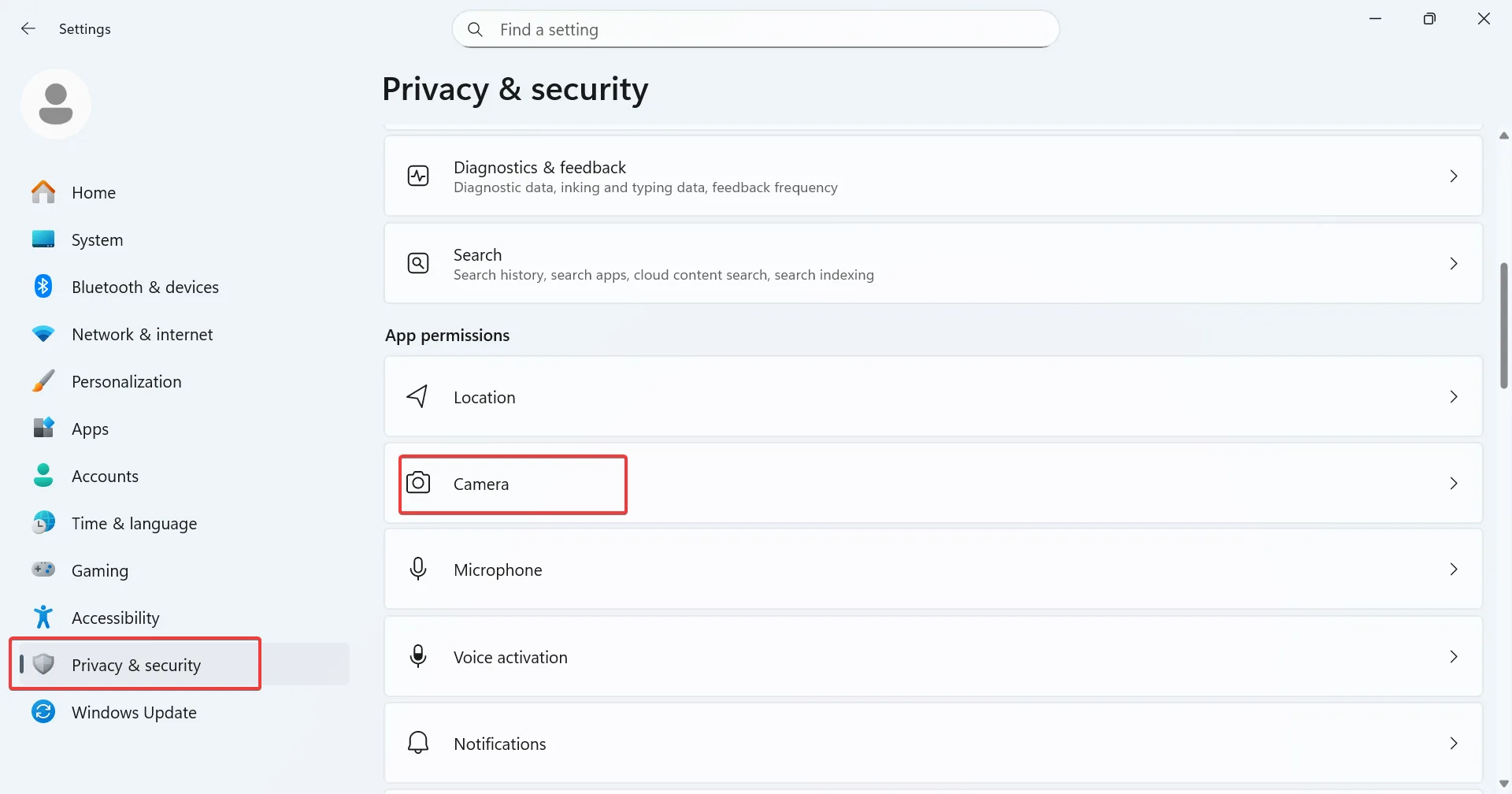
- In here, disable the toggle for any app that you don’t want accessing the webcam.
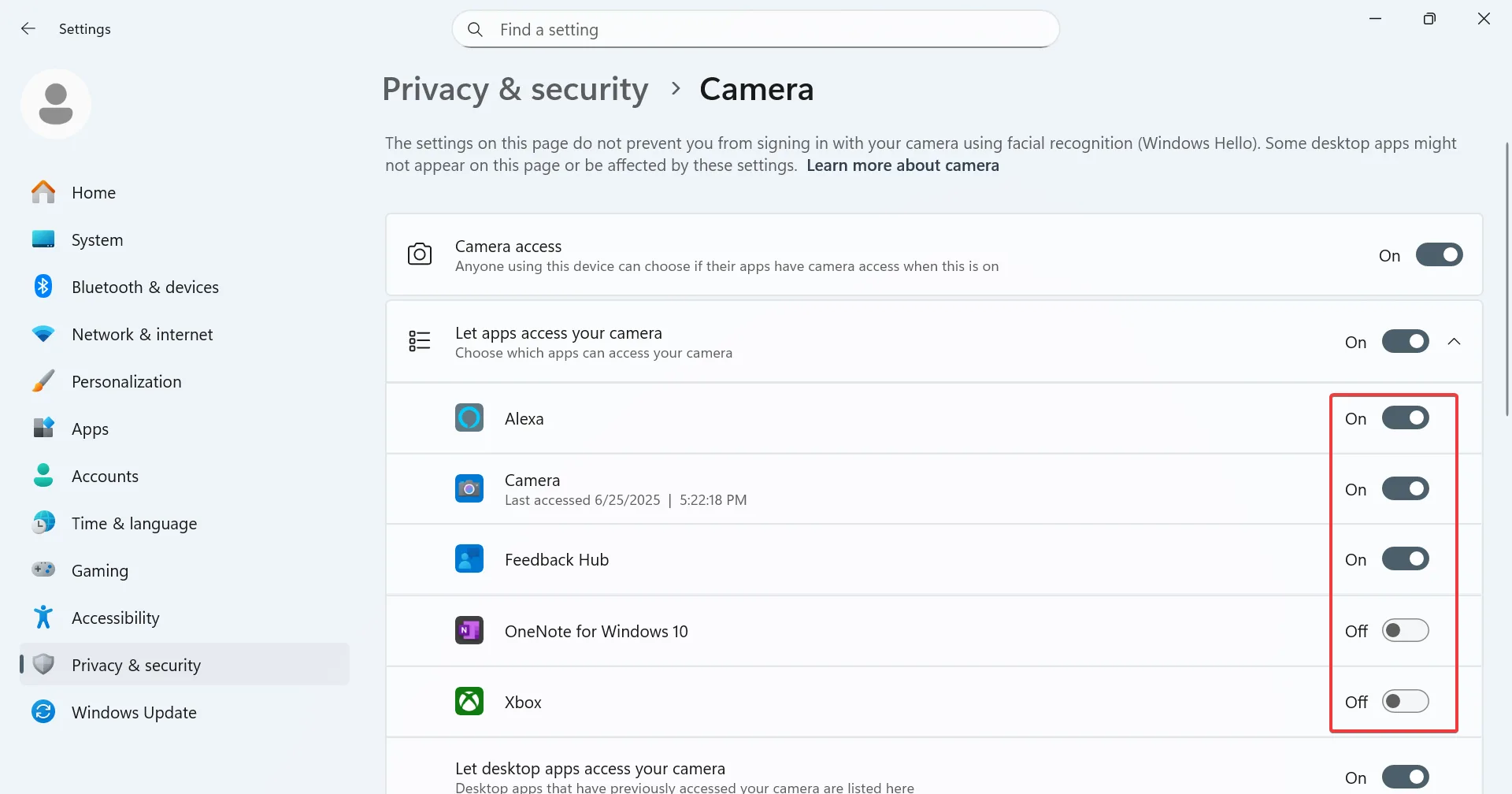
- The entries listed under “Let desktop apps access your camera” are the apps installed from sources other than the Microsoft Store. You can’t restrict access to them individually. Disabling the toggle will block camera access for all such apps.
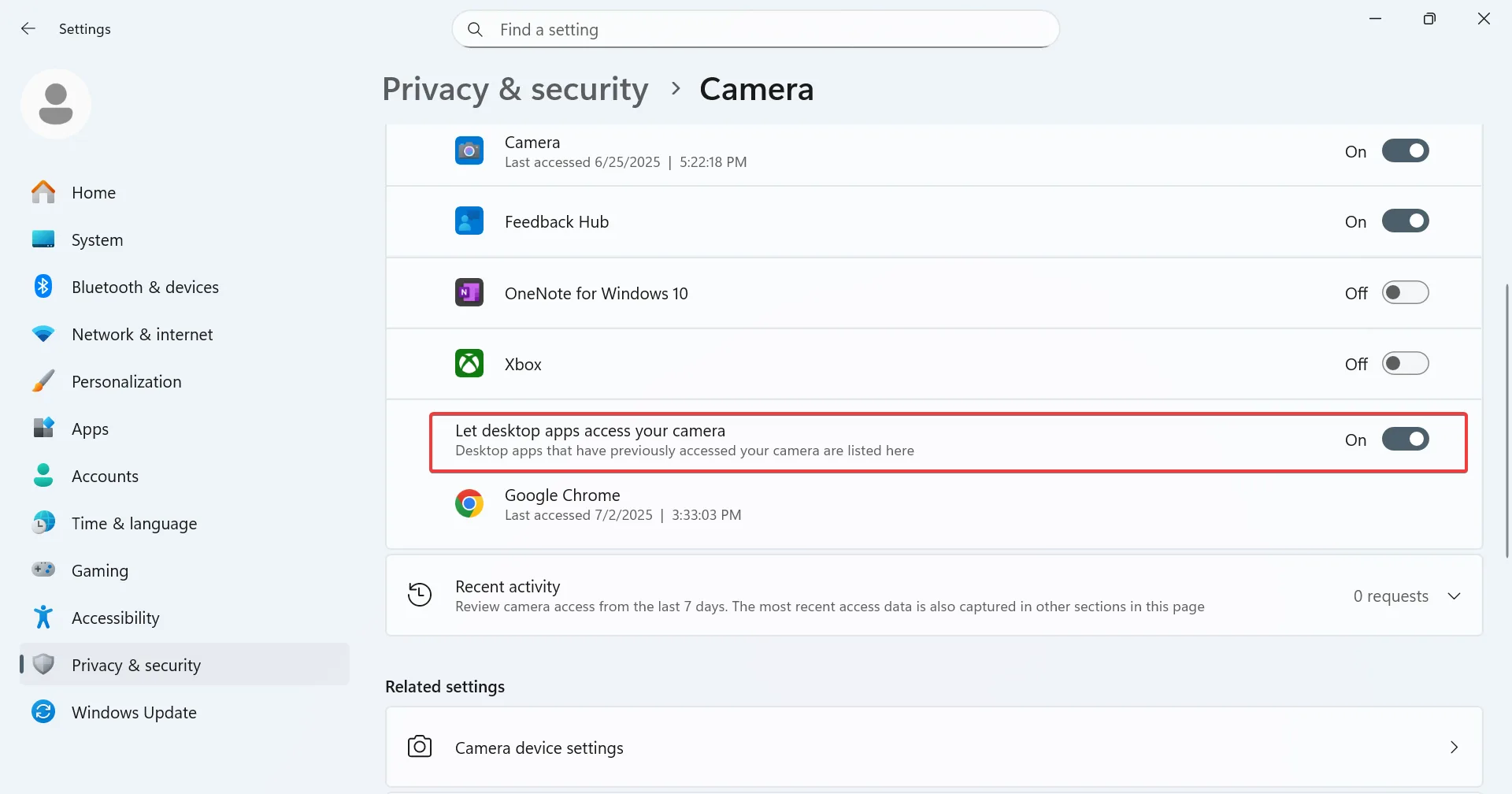
- If you want to restrict camera access for all apps, including those that were pre-installed, downloaded from the Microsoft Store, or installed from third-party sources, disable the toggle for “Let apps access your camera.”
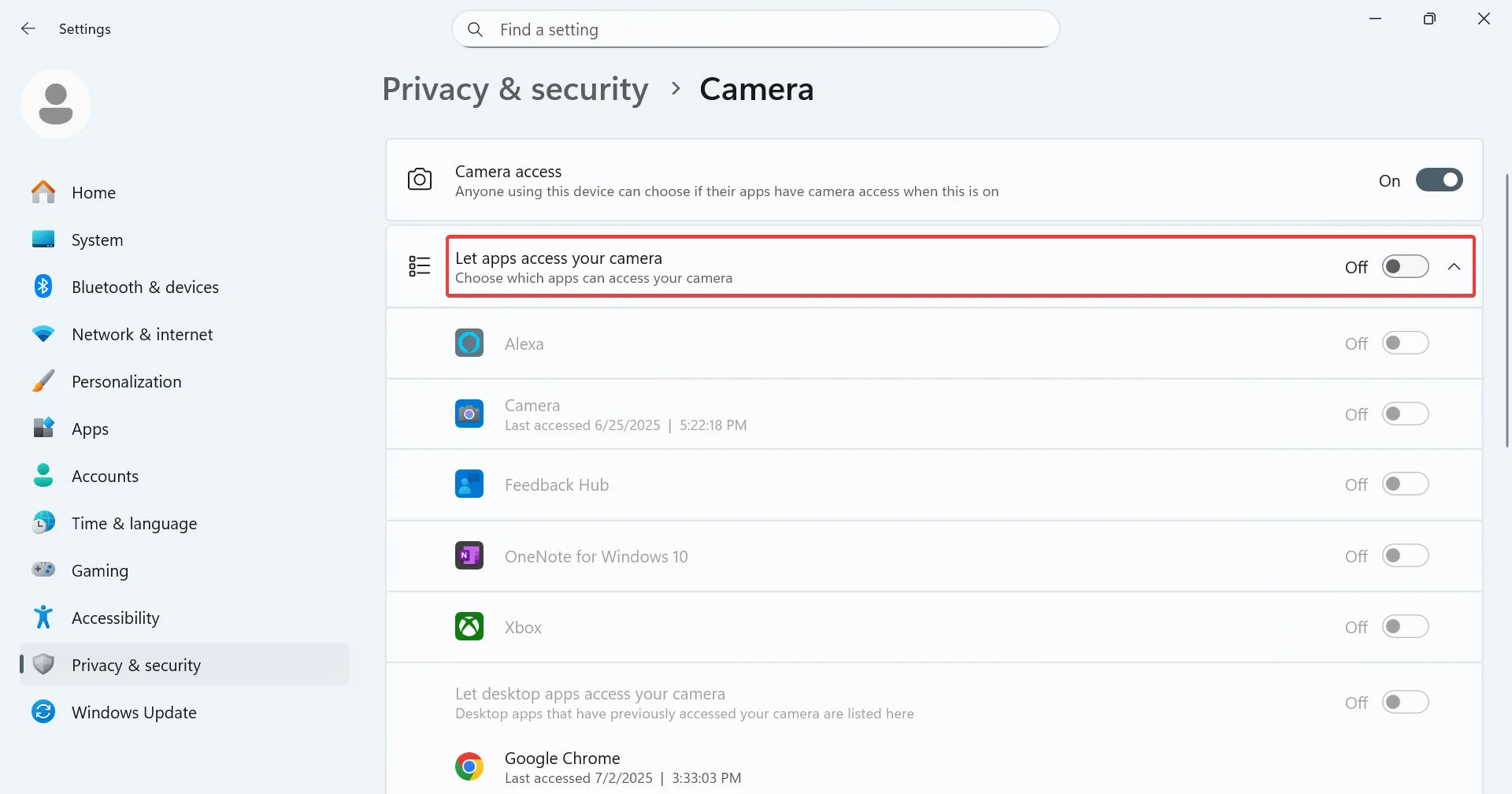
2. Via Registry Editor
Advanced users can quickly disable webcam access for all apps and users on Windows 11 by editing the Registry. Although it’s quicker, this method poses a risk if the actions are performed incorrectly or values other than the ones described below are assigned. So, make sure to follow the steps to the T!
- Press Windows + S to open Search, type Registry Editor, and click on the relevant result.
- Click Yes in the UAC prompt.
- Navigate to the following path or paste it in the address bar and hit Enter:
Computer\HKEY_LOCAL_MACHINE\SOFTWARE\Microsoft\Windows\CurrentVersion\CapabilityAccessManager\ConsentStore\webcam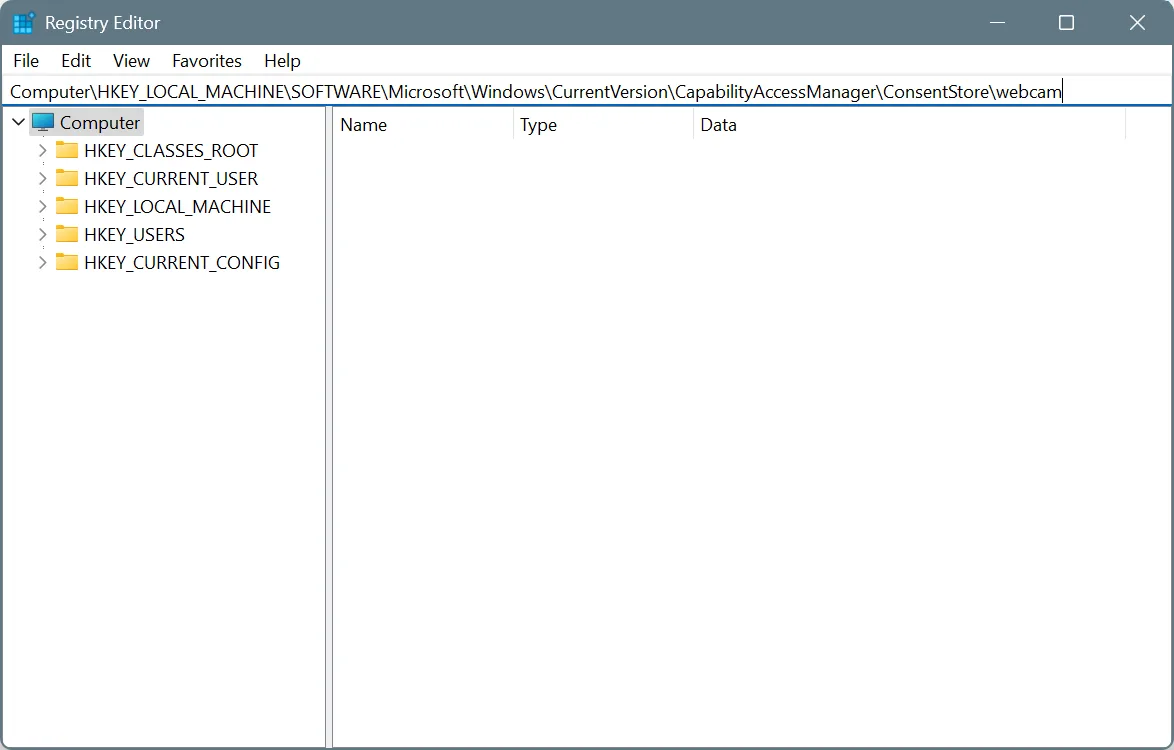
- Double-click the Value string on the right.
- Enter Deny under Value data instead of Allow and click OK. Here’s what the two values mean:
- Allow: Let apps access the camera/webcam
- Deny: Don’t let apps access the camera/webcam
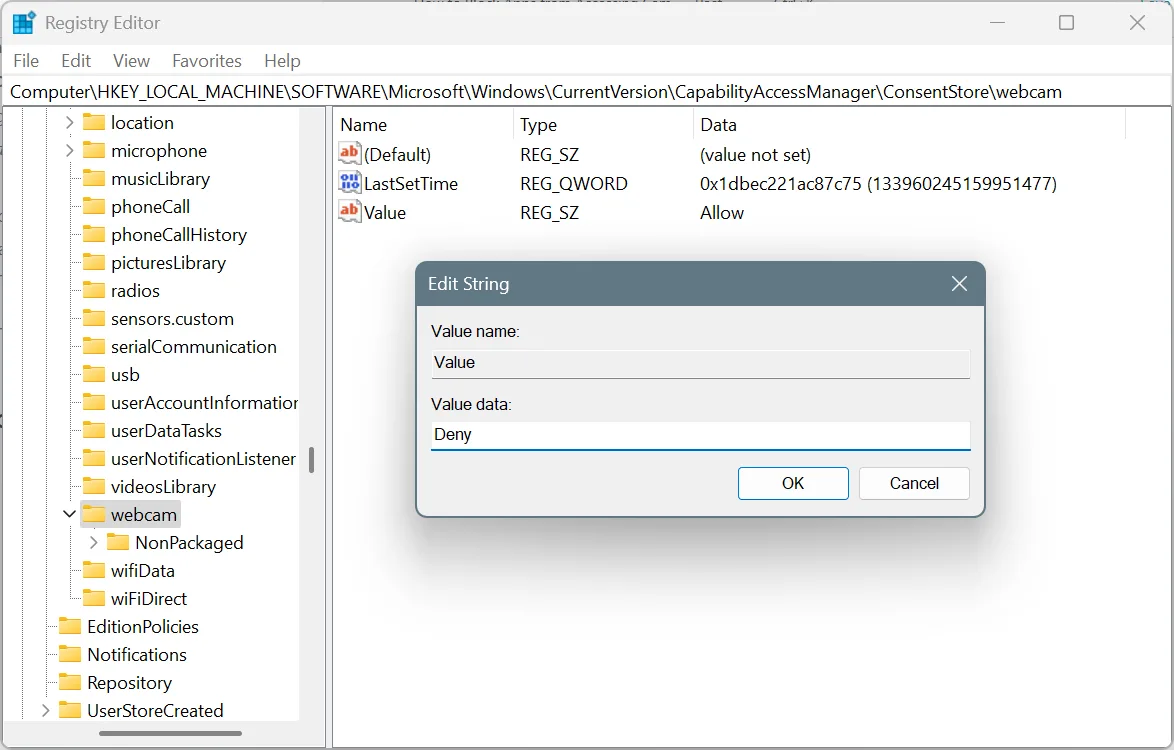
- Now, the camera access for apps should be blocked. If not, restart the PC to apply the changes.
You can similarly control camera/webcam access for all apps via the Local Group Policy Editor (gpedit.msc).
- Just go to this path:
Computer Configuration > Administrative Templates > Windows Components > Camera - Double-click the Allow Use of Camera policy on the right.
- Select Disabled to restrict camera access for apps (and select Enabled to allow full camera access).
If you are on the Home edition of Windows 11, that doesn’t come with gpedit.msc pre-installed, learn how to install the Local Group Policy Editor in Windows!
3. Via a third-party security software
Several third-party security software also allow users to block apps from accessing the webcam in Windows 10 and Windows 11. For instance, this guide on the web explains the process to turn off camera access using Kaspersky, a popular third-party antivirus solution. Similarly, other software like Norton and Avast, too, offer the functionality!
But, since the setting to disable camera access for apps is natively available in Windows, I recommend against the use of third-party software, if installed specifically for this purpose. Although if you are already using such a software, there’s no harm in utilizing the feature, given that it doesn’t conflict with Windows.
That’s all about blocking apps from accessing your camera or webcam on a Windows 11 PC. As I said earlier, the steps are similar for Windows 10. So, make it a habit to regularly verify which apps have access to the webcam and restrict the non-critical ones.
For those who are unaware, many modern-day scams involve threat actors hacking into your webcams and capturing photos and videos without leaving a trace. That’s the reason many laptop manufacturers have started integrating shutters into the webcam, which cover the lens when the camera is not in use!
Before you leave, find out how to block apps from accessing the Internet on Windows.
For any queries or to share effective tips on webcam safety, drop a comment below.

With over five years of experience in the tech industry, Kazim excels at simplifying complex topics, making them accessible to tech enthusiasts and general readers alike. He has contributed to several renowned publications worldwide, including WindowsReport and Allthings.how, bringing insightful coverage of key developments in the field.
Kazim has extensively covered the Windows ecosystem, from the early days of Windows 7 to Windows 11. Unlike many in the field, he’s optimistic about Windows 11, calling it the most user-oriented iteration to date.
When he’s not writing, you’ll find Kazim planning weekend getaways or diving into tech verticals beyond his expertise.

